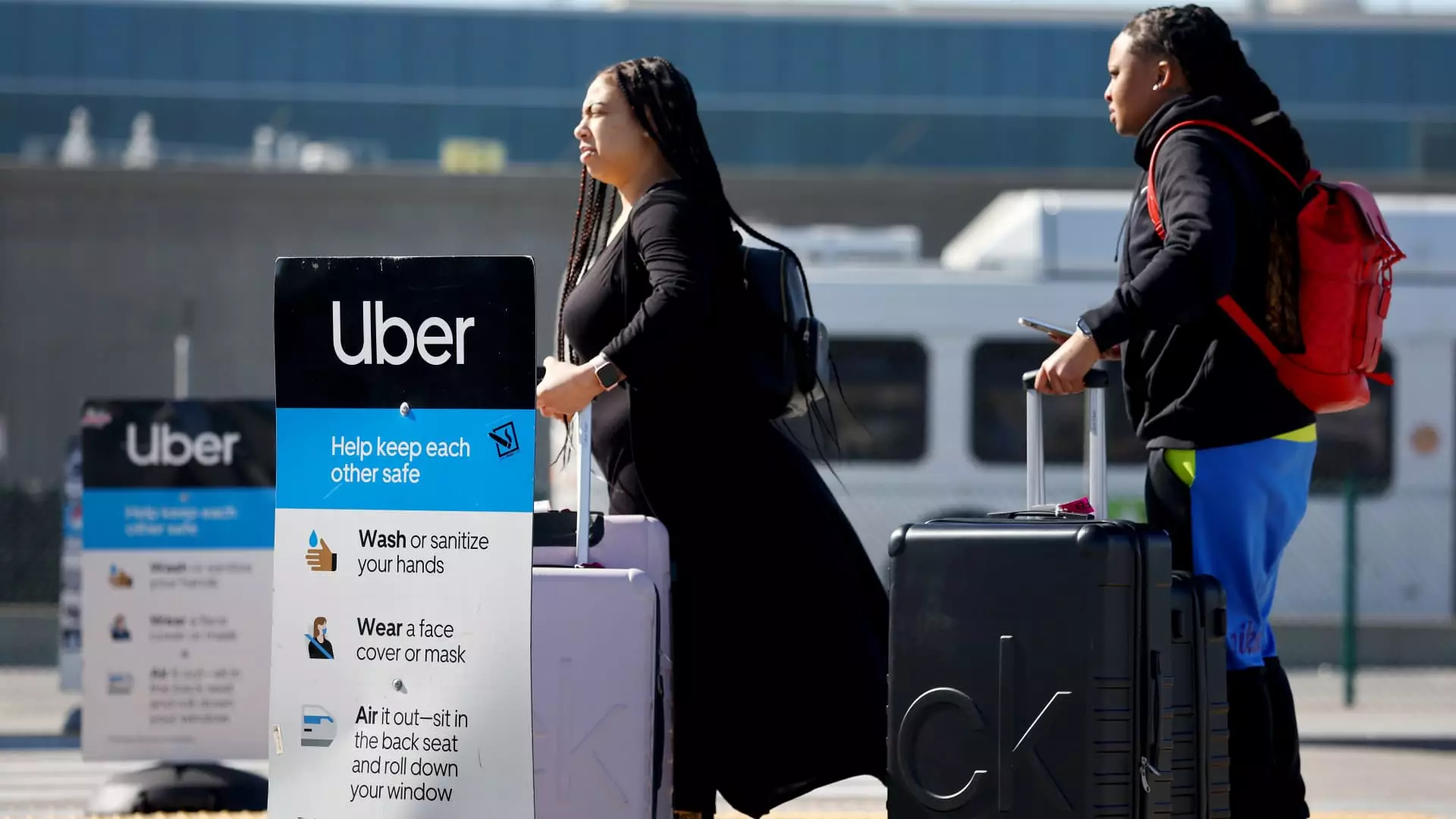As the travel industry continues to rebound in the post-pandemic world, Delta Air Lines has announced an exciting new partnership with Uber, coinciding with the end of its previous collaboration with Lyft. This strategic alliance aims to enhance the travel experience for SkyMiles loyalty program members by allowing them to earn frequent flyer miles on Uber rides and food deliveries. This article delves into the implications of this partnership, the motivations behind it, and the overarching trends within the airline industry.
Delta’s decision to part ways with Lyft and join forces with Uber marks a significant shift in the landscape of airport transportation options. The airline has recognized the potential to offer its loyal customers greater rewards through an extensive partnership with a larger ride-hailing platform. Uber’s robust user base significantly outnumbers that of Lyft, which can translate into more opportunities for Delta’s SkyMiles members to earn miles. With the new partnership, passengers will gain the ability to earn one mile per dollar spent on UberX rides, two miles for premium services like Uber Comfort, and three miles for Uber Reserve trips. In addition, they will earn miles on Uber Eats orders of over $40, expanding the opportunities for customers to accumulate rewards even when they are away from the airport.
The move away from Lyft suggests that Delta is recalibrating its strategy to align more closely with the travel habits of consumers, focusing on making airport journeys as streamlined as possible. Given the increasing competition among airlines to retain customer loyalty, a partnership with Uber allows Delta to integrate ride-sharing into a seamless travel experience.
Loyalty programs have become a cornerstone of the airline industry, significantly increasing customer engagement and retention. According to reports, Delta’s loyalty initiatives generate billions of dollars every year, playing a vital role in the company’s overall revenue. By aligning itself with Uber, Delta positions itself well within this competitive landscape, with additional partnerships involving brands like Starbucks, Hertz, and Ticketmaster further enhancing its appeal to travelers.
The financial dynamics behind this partnership are compelling as well. Delta’s credit card partner, American Express, contributes to the impetus for this move, facilitating additional credits for rides and food delivery through Uber. This mutually beneficial relationship signifies how intertwined the airline and fintech industries have become, signaling a trend of integrating travel amenities into everyday financial transactions.
As part of the transition from Lyft, Delta has ensured that consumers with linked accounts have until April 7 to continue earning miles. This thoughtful approach underlines Delta’s commitment to its customers during this shift. A spokesperson confirmed that customers would receive direct communication regarding the changes, demonstrating the airline’s intention to maintain transparency throughout the process.
Moreover, Lyft’s response emphasizes their commitment to finding new partnerships that align with customer demands. Their connections with significant businesses such as Alaska Airlines and DoorDash showcase their adaptability in navigating the ever-evolving travel and food delivery landscape. The competitive nature of these partnerships adds to a broader narrative of how brands must evolve to match consumer preferences.
The announcement of the Delta-Uber partnership coincides with several significant technology advancements, including Delta’s plan to integrate artificial intelligence into their app and improve in-flight entertainment systems. As the airline industry continues to grow, the integration of technology will play a critical role in enhancing the travel experience, making it imperative for airlines to adapt effectively.
As Delta prepares to report its quarterly earnings, observers will closely monitor the impact of this partnership on customer engagement and revenue. With both Delta and Uber boasting substantial user bases, this collaboration stands to redefine how travelers approach airport transportation and meal delivery while fostering loyalty through innovative rewards programs.
Delta Air Lines’ new alliance with Uber encapsulates a forward-thinking approach aimed at enhancing customer experience while positioning itself advantageously within a highly competitive market. As travel habits continue to evolve, partnerships like this one will likely shape the future of air travel in a post-pandemic era.

